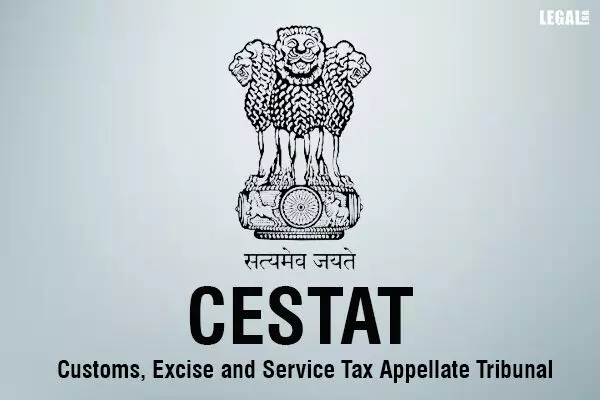- Home
- News
- Articles+
- Aerospace
- Agriculture
- Alternate Dispute Resolution
- Banking and Finance
- Bankruptcy
- Book Review
- Bribery & Corruption
- Commercial Litigation
- Competition Law
- Conference Reports
- Consumer Products
- Contract
- Corporate Governance
- Corporate Law
- Covid-19
- Cryptocurrency
- Cybersecurity
- Data Protection
- Defence
- Digital Economy
- E-commerce
- Employment Law
- Energy and Natural Resources
- Entertainment and Sports Law
- Environmental Law
- FDI
- Food and Beverage
- Health Care
- IBC Diaries
- Insurance Law
- Intellectual Property
- International Law
- Know the Law
- Labour Laws
- Litigation
- Litigation Funding
- Manufacturing
- Mergers & Acquisitions
- NFTs
- Privacy
- Private Equity
- Project Finance
- Real Estate
- Risk and Compliance
- Technology Media and Telecom
- Tributes
- Zoom In
- Take On Board
- In Focus
- Law & Policy and Regulation
- IP & Tech Era
- Viewpoint
- Arbitration & Mediation
- Tax
- Student Corner
- AI
- ESG
- Gaming
- Inclusion & Diversity
- Law Firms
- In-House
- Rankings
- E-Magazine
- Legal Era TV
- Events
- News
- Articles
- Aerospace
- Agriculture
- Alternate Dispute Resolution
- Banking and Finance
- Bankruptcy
- Book Review
- Bribery & Corruption
- Commercial Litigation
- Competition Law
- Conference Reports
- Consumer Products
- Contract
- Corporate Governance
- Corporate Law
- Covid-19
- Cryptocurrency
- Cybersecurity
- Data Protection
- Defence
- Digital Economy
- E-commerce
- Employment Law
- Energy and Natural Resources
- Entertainment and Sports Law
- Environmental Law
- FDI
- Food and Beverage
- Health Care
- IBC Diaries
- Insurance Law
- Intellectual Property
- International Law
- Know the Law
- Labour Laws
- Litigation
- Litigation Funding
- Manufacturing
- Mergers & Acquisitions
- NFTs
- Privacy
- Private Equity
- Project Finance
- Real Estate
- Risk and Compliance
- Technology Media and Telecom
- Tributes
- Zoom In
- Take On Board
- In Focus
- Law & Policy and Regulation
- IP & Tech Era
- Viewpoint
- Arbitration & Mediation
- Tax
- Student Corner
- AI
- ESG
- Gaming
- Inclusion & Diversity
- Law Firms
- In-House
- Rankings
- E-Magazine
- Legal Era TV
- Events
CESTAT: CENVAT Credit Available on Books of Account Cannot be Rejected when Accumulated on Account of Export of Service

CESTAT: CENVAT Credit Available on Books of Account Cannot be Rejected when Accumulated on Account of Export of Service
The Customs, Excise, and Service Tax Appellate Tribunal (CESTAT), Mumbai by its single-member Anil G. Shakkarwar (Technical Member) has observed that, unless CENVAT Credit availed by the appellant has not been recovered by way of issue of show cause notice invoking Rule 14 of CENVAT Credit Rules, 2004, the CENVAT Credit available on the books of account cannot be rejected when it is accumulated on account of export of Service.
In the present case, the appellant/assessee- M/s. Saavn Media Private Limited, is engaged in export of service and they availed CENVAT Credit of Service Tax paid on the input Services. The appellant filed two separate refund applications for refund of unutilized accumulated CENVAT Credit under the provisions of Notification No. 27/2012-CE dated 18 June, 2012 issued under Rule 5 of CENVAT Credit Rules, 2004.
Certain amounts were allowed and certain amounts were rejected. Against the refunds rejected, appellants preferred two separate appeals before the Commissioner (Appeals). The Commissioner (Appeals) allowed some relief but also did not allow refund of Rs. 5,97,465 out of one claim and did not allow refund of Rs. 6,17,759 in respect of the other claim and therefore, appellant had preferred two appeals in respect of the rejected portion of the two refund claims, before the CESTAT.
The Learned Counsel for the appellant submitted that out of the amounts reflected in two appeals one was CENVAT Credit of Service Tax paid on Event Management Service and the other one was Service Tax paid on Renting of Immovable Property. He further submitted that they were issued with deficiency memo but there was no issue of show cause notice for rejection of refund.
The reason for rejection was that the premises in respect of which the rent was paid was not included in the Service Tax registration by the appellant.
The CESTAT at the outset highlighted that, it is a settled law that unless CENVAT Credit availed by the appellant was not recovered by way of issue of show cause notice invoking Rule 14 of CENVAT Credit Rules, 2004, the CENVAT Credit available on the books of account cannot be rejected when it was accumulated on account of export of Service.
The single member stated, “in present case I find that above stated amounts of CENVAT Credit was not disallowed by way of invoking Rule 14 of CENVAT Credit Rules, 2004 and therefore, the said amounts are available in the account of the appellant.”
Therefore, since CENVAT Credit was available on the accounts of the appellant, the refund of the same could not be rejected, held the Tribunal.
The CESTAT, set aside the order rejecting the refund of CENVAT credit and directed the original authority to allow the refund.



